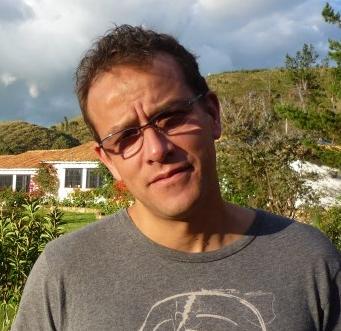By ELLEN TORDESILLAS
THE Commission on Human Rights is availing of the services of two international experts on investigation of human rights violations to help probe the Maguindanao massacre that killed 57 persons, the worst election-related violence in a highly volatile Philippine elections.
Human Rights Chairperson Leila de Lima said the commission has deputized Peruvian Jose Pablo Baraybar, a forensic anthropologist who helped convict former Peruvian President Alberto Fujimori for mass murders, to initially “make crime scene on-site assessment and evaluation.”
She said, “If Dr.Baraybar recommends the exhumation of the bodies for further investigation, we will coordinate with relatives and proper authorities for that.”
De Lima said Baraybar will be assisted by British Chris Cobb-Smith, a seasoned inspector and investigator in trouble spots all around the world. “Smith’s expertise is relevant to our investigation of the Nov. 23 carnage,” she said..
De Lima will be meeting Baraybar and Smith in Cotabato Sunday together with lawyer Harry Roque, chairperson of Center for International Law which sponsored the trip of the two human rights experts to the Philippines. CenterLaw is a member of the Southeast Asia Media Defense Network, which is actively supporting the search for justice for the 32 journalists among the victims of the massacre.
De Lima said Baraybar, who will be working with Filipino forensic expert Rachel Fortun, has conducted workshops with CHR investigators in cooperation with CenterLaw early this year and she is impressed with him.
Baraybar is head of Peruvian Forensic Anthropology Team (EPAF) that helped secure the conviction of Fujimori for his role in two massacres in the early 1990s.
In a historic decision April this year, Fujimori was sentenced to 25 years in prison for ordering the killing of 25 Peruvians. Fifteen of the victims were shot at a barbecue in the Barrios Altos area of Lima. Another 10 were abducted in 1992 from La Cantuta University and later killed.
More than 69,000 Peruvians lost their lives during the country’s 20-year struggle between the two insurgent groups, Shining Path and the Tupac Amaru Revolutionary Army, and the government. About 15,000 people disappeared. The majority of the bodies have yet to be recovered and identified.
Baraybar has also participated in the investigation of mass murders in Rwanda, Bosnia and Kosovo.
Smith is with Chiron Resources, a London-based firm that specializes on “hostile environment support.”
Smith served for 19 years in the Royal Artillery and as a Commando Battery commander, deployed to Kurdistan in support of the 1991 humanitarian mission. After leaving the British Army, he was recruited in 1996 by the Foreignand Commonwealth Office for secondment to UNSCOM as an Iraq Weapons Inspector and Operations Officer. He was appointed chief inspector conducting investigations into proscribed weapons programs and suspected concealment.
He has served as liaison officer to the Kosovo Liberation Army, mediating prisoner and body exchanges. During the NATO in the Balkans he advised and escorted journalists and camera crews covering events in Macedonia, Albania and Kosovo.
Smith has also conducted investigations into a number of high-profile human rights and humanitarian law violations, primarily in the Israeli Occupied Territories and those controlled by the Palestinian Authority. Foremost among these were the deaths in 2000 of a BBC driver/fixer Abed Takkoush and in May 2003 of director and cameraman James Miller in Rafah, Gaza.
